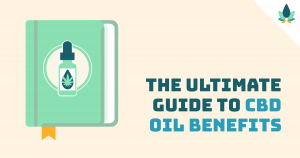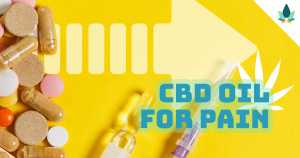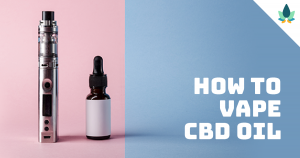The heart is a complicated, vital, and powerful organ which, unfortunately, can be the root cause of major health problems.
If there was a way to minimize (or at least reduce) the risk of cardiovascular problems, wouldn’t it be worth checking into? CBD may be just that – a highly sought after a solution that has been missing for cardiovascular health.
Why?
To start, we know that foods rich in antioxidants and fatty acids can help reduce cardiovascular risk. Other compounds like CBD (rich in anti-inflammatory and anti-oxidative compounds) may also be useful in preventing cardiovascular disease – even for those considered “high-risk.”
In addition to anti-inflammatory and anti-oxidative properties, research shows that CBD can also promote relaxation while reducing stress – a factor that can lead to cardiovascular damage over time. More on the benefits of CBD in a moment – first, let’s take a closer look at the heart. (1)
My Heart Will Go On… or Will It?
The human heart has tremendous strength and endurance. Nevertheless, it is susceptible to disease. Ranging from valve problems and arrhythmias to heart attacks or cardiovascular-related strokes, heart disease is the leading cause of death in the US. It claims the lives of more than 610,000 people each year. In fact, cardiovascular disease causes more deaths than accidents, chronic respiratory diseases, and cancer combined. (2, 3)
High blood pressure, arrhythmias, and inflammation are common problems for much of the population. These can be made worse by other conditions like obesity, diabetes, smoking, stress, and more. Many Americans are aware of the risks of heart disease and are vigilant in attempting to remain active, maintaining a healthy lifestyle, and taking other necessary steps to prevent trouble. One of the most effective (and natural) ways to protect your own ticker is through the use of cannabidiol, better known as CBD.
How Does CBD Promote Cardiovascular Health And Help With Heart Disease?
Studies show that CBD isolates arteries and reduces tension and inflammation in specific areas of the body, especially those related to cardiovascular health.(4)
A 2013 study explains how CBD influences blood cells, which help control the cardiovascular system: (5)
In blood, CBD influences the survival and death of white blood cells, white blood cell migration and platelet aggregation. Taken together, these preclinical data appear to support a positive role for CBD treatment in the heart, and in peripheral and cerebral vasculature. However, further work is required to strengthen this hypothesis, establish mechanisms of action and whether similar responses to CBD would be observed in humans.
Part of what makes CBD attractive for people looking for relief from various pains, inflammation, and anxiety is that it’s non-intoxicating. Instead, CBD interacts with your body’s endocannabinoid system – the system that bridges the gap between mind and body, creating homeostasis when in balance – and helps to restore and maintain equilibrium throughout our bodies.
Let’s move on to more specific cardiovascular benefits.
CBD Reduces Arrhythmias
When a doctor finds an arrhythmia, he or she has simply identified an irregular heartbeat. Beating too fast or too slow, an irregular heartbeat can be a sign that the heart is not working properly. A racing heart or flutters can be symptoms of common arrhythmias. (6)
Sometimes these arrhythmias can be the result of a weakened heart and can be fatal if left untreated. CBD helps the heart achieve regularity, which could reduce arrhythmias while increasing overall cardiovascular health and optimal function.
CBD Reduces Cardiac Inflammation
An inflamed heart is dangerous. Caused by a weakened immune system, medications, diseases, dietary habits, or other factors, untreated inflammation can lead to death.
Thankfully, CBD is a natural anti-inflammatory. As CBD binds to the endocannabinoid receptors, it reduces inflammation and stops the production of toxins that can lead to inflammation, thickening, and hardening of the heart walls and valves.
A study published in 2010 in the British Journal of Pharmacology showed many promising results for CBD’s role in maintaining cardiovascular health. Researchers concluded that CBD lowered the number of arrhythmias in study participants and infarct sizes, a scale used to determine heart failure. In this study, scientists found that CBD could assist with the maintenance of cardiovascular health. (7)
These are just a few benefits! Beyond cardiovascular health, CBD has been shown to combat and treat conditions that could cause cardiovascular problems such as:
Can CBD Affect Your Heart?
In addition to cardiovascular disease improvement, CBD directly affects the heart in “healthy” individuals as well, due to its ability to cause vasorelaxation. (8)
No matter who you are, when your heart is able to work efficiently without working harder, there are benefits. This is why blood pressure is so frequently measured. A healthy heart does its job without going into overdrive.
CBD’s vasorelaxation capabilities mean that is can help users achieve a lower resting blood pressure, reducing the future risk of cardiovascular disease or extracardiac stress.
Are There Other Side Effects of CBD?
Anything we put in our body is bound to have some sort of side effect. CBD’s natural properties mean most people are able to tolerate it; however, using CBD oil with other medications may change the effectiveness of the medication, or cause fatigue and changes in appetite. And like with any inhaled smoke, using CBD as an inhalant may cause lung problems.
That being said, the medical potential and therapeutic benefits of CBD are phenomenal, especially for overall cardiovascular health. If you have been looking for relief or a better way to protect your heart, CBD may be the perfect solution.
How To Use CBD For Cardiovascular Patients
While CBD has tremendous cardiovascular benefits, patients should not eliminate prescribed medications without speaking with their physicians. Open communication while adding CBD to your regimen is absolutely critical.
CBD can be used as part of a daily maintenance regimen, as well as when flare-ups occur, in conjunction with medically-recommended treatments, especially to start.
For daily use, soft-gels and tinctures taken orally are optimal. These allow the body to naturally absorb and make use of the highest level of CBD, without the need for rapid or immediate action. As with most conditions, it’s recommended to start with a small amount – 5-10mg per day – and wait a few weeks to watch for improvement before increasing the dosage.
WHEN TAKEN ORALLY, THE EFFECTS OF CBD ARE SAID TO LAST AROUND 8 HOURS, WITH THE MOST NOTICEABLE IMPROVEMENT 45-90 MINUTES AFTER INGESTION.
For individuals who experience flare-ups due to their conditions, the second form of CBD that acts more rapidly may be ideal. In this case, keeping vaporized CBD on hand may be ideal. When inhaled, CBD is more rapidly absorbed with instant beneficial effects.
Because there’s no risk of overdosing on CBD, keeping various forms on hand for a boost when needed does not present any additional risks.









